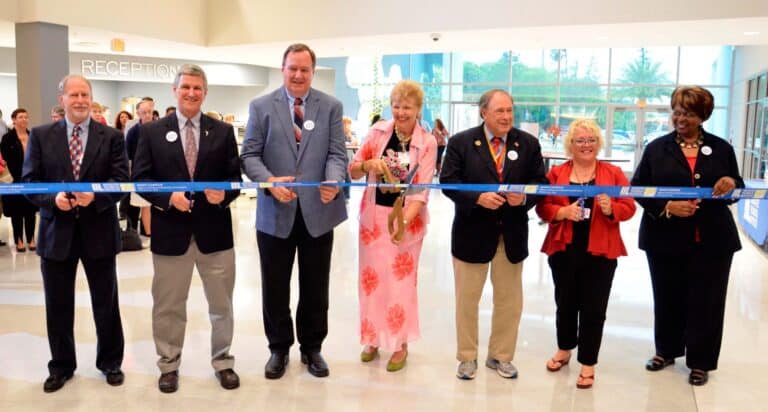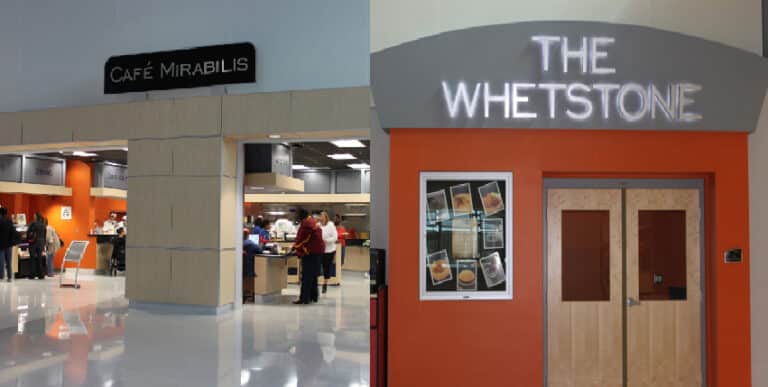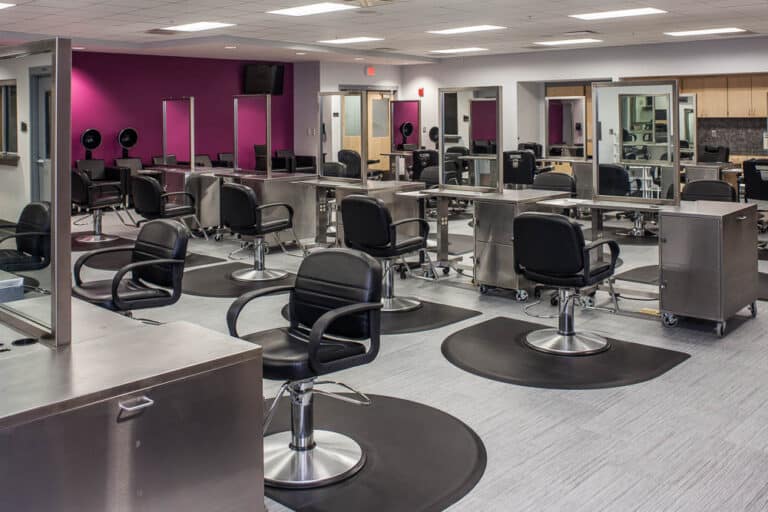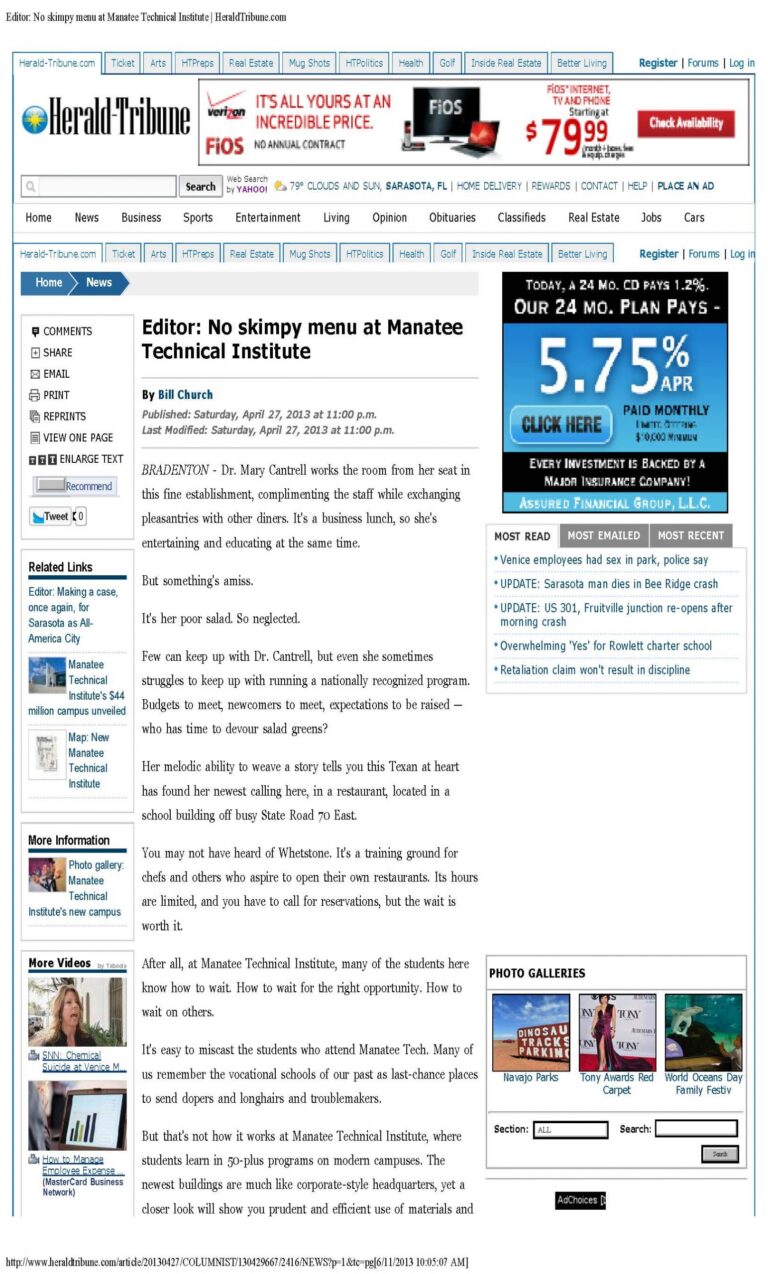Healthcare workers on the way in Manatee County | From the Observer
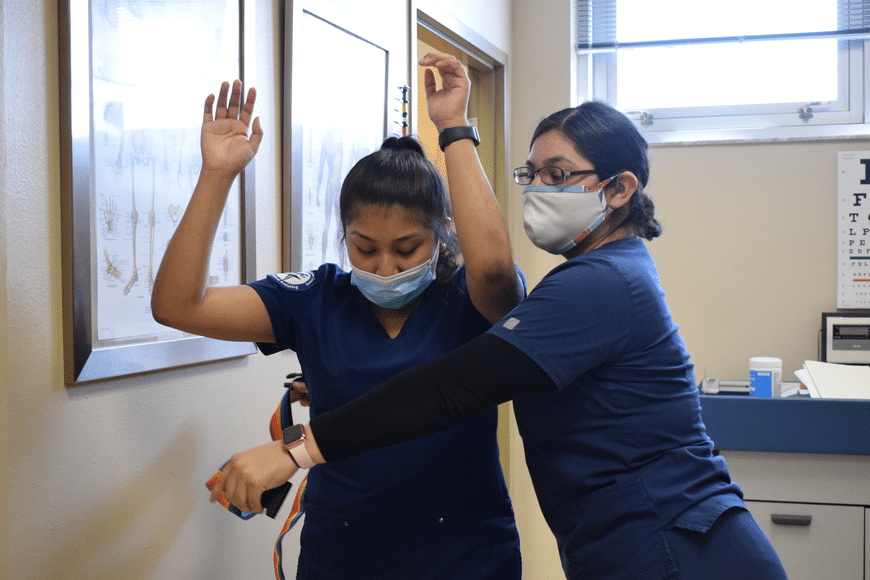
Manatee Technical College goes to hybrid programs to meet increasing healthcare industry needs.
When Hidden Oaks’ Nicole Slade was taking an anatomy class at State College of Florida for her associate’s degree, she learned something new about herself.
Although she had never had an interest for the medical field, she found out there was an administrative and coding side to the industry.
After doing some research, she decided to pursue a career as a medical coder and biller, but she needed to earn a certification.
Slade enrolled in Manatee Technical College’s medical coder/biller online program in August 2020.
MTC started providing the medical coder/biller program online in addition to its regular full-day program to provide a flexible option for students while also producing more potential employees in the health care field for local employers.
The college has also added a hybrid schedule for its medical assisting program and plans to add a hybrid option for its pharmacy technician and practical nursing programs in the fall. A hybrid schedule means students will be on campus three nights per week for hands-on training while completing other coursework on their own time at home.
Jennifer Gilray, an assistant director at Manatee Technical College, said the night courses for these programs normally take two years to complete, but the hybrid option means students will be done in a year just like the full-day programs.
Linda Chamberlain, an instructor of the medical assisting program, said the hybrid schedule’s flexibility gives students who have scheduling conflicts due to issues with transportation, child care or jobs an opportunity to further their education on their own time.
In last year’s class, Chamberlain had three students working for Intercoastal Medical Group who were enrolled in the medical assisting program at the same time. They would take the skills they were learning in the program and apply them to their jobs immediately.
“They were able to be in the job force without having graduated with all the skills yet,” Chamberlain said.
Slade said having the program online gives her an opportunity to work a part-time job and spend time with her family while also completing her coursework.
Lakewood Ranch’s Josh Cohen, who is a student in the medical coder/biller program, said the program is the first time he’s done any class completely online, and he’s been pleased with how he’s doing.
“I like that the material is interesting, and there’s a big variety of topics,” Cohen said. “The teacher is great. She explains things well, and she’s patient. She explains things in a way that makes it easy for the average person to have a much better understanding of it.”
While students are completing work at home, Chamberlain provides several resources for them including access to simulation modules, so students can practice drawing blood, giving an injection, following surgical procedures and more from the comfort of their homes.
“They have a much better, more comfortable feeling when they get on campus about holding a needle or where it’s going or what they need to do with it after they’re finished with it,” Chamberlain said.
Having the hybrid or online option for students in the medical assisting and medical coder/biller programs on top of the regular full-day programs means MTC could help fill a need in the community.
Chamberlain said she receives calls every day from potential employers looking for positions to be filled.
“Health care workers are in such demand, so it’s great to know we don’t have to wait for a perfect set of circumstances,” she said. “Because of the flexibility, we can train all different ways.”
The pharmacy technician program doesn’t have an evening program available for students, but with the insistence of instructor David Harris, MTC will provide a hybrid schedule for the program in the fall.
Harris said the hybrid schedule could draw a new demographic to the program.
“We have a huge Hispanic population in this area, and there’s a need for bilingual people in health care,” Harris said. “One of the reasons to have it is to make it more accessible to students. A lot of my students have to work, and some have children. It’s another way to draw in some people from that community.”
Harris said the need for pharmacy technicians is fluctuating with anywhere between 50 to 300 jobs available all the time in Manatee County and surrounding areas.
“I get calls every week, and I don’t have enough students to fill the spots,” Harris said.
The practical nursing program was only offered as a full-day program or a program on the weekends. If students only had classes during the weekend, it would take them two years to complete, which is a reason many students dropped out, Gilray said.
The practical nursing hybrid program will start out with 16 students as a test run, and students will be surveyed along the way to see how it works for students and the clinical sites in which they intern, Gilray said.

